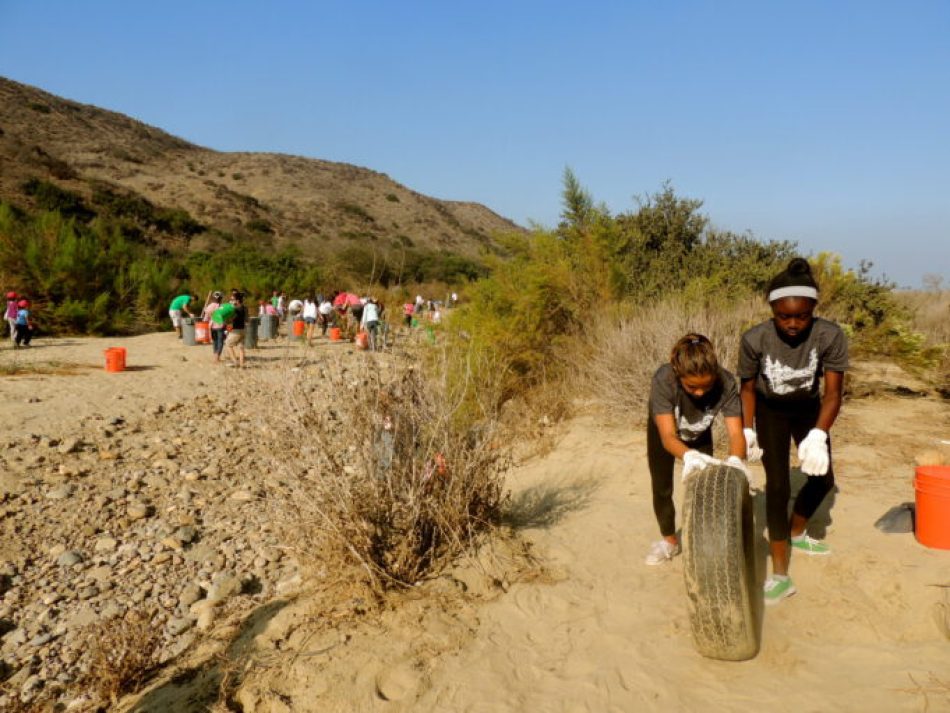Ocean Pollution Solutions On The US-Mexico Border
October 9, 2020
Flowing 120 miles through the mountains and deserts of northwest Mexico, the Tijuana River reaches the Pacific Ocean at Tijuana River Mouth State Marine Conservation Area, California’s southernmost marine protected area. The river’s coastal estuary, a US national estuarine research reserve, is made up of many diverse and sensitive habitats, including beaches, sand dunes, mudflats, salt marshes, and vernal pools. The estuary helps filter and clean water before it enters the Pacific, provides value for local fisheries, stores carbon, and is a key stop for migratory birds on the Pacific Flyway.
Unfortunately, these sensitive coastal ecosystems and public health in border region communities are under threat. Local people call the Tijuana River “La Agua Negra”–or, “The Black Water”–due to the high levels of pollution and contamination. Single-use plastics and other waste are dumped illegally in canyons and ravines along the Tijuana River and transported into coastal areas and eventually the Pacific Ocean, contributing significantly to cross-border and marine pollution. A rapidly changing climate that includes increased monsoonal rains in summer months brings an unprecedented influx of discarded plastics that are carried with stormwater flows across the border impacting federal, state, and local protected areas.
The Solution
To help curb plastic waste in the border region and address the global ocean plastic crisis, WILDCOAST is installing a plastic capture system at Los Laureles Canyon, one of the Tijuana River’s tributary streams. The canyon is home to 65,000 people. The plastic-intercepting system, called a “Brute Boom”, consists of a double-walled float attached to a galvanized steel debris screen. The barrier is attached to concrete structures on the banks of the river through galvanized chains and galvanized steel shackles.
WILDCOAST will sort captured debris, shred recyclable plastics, and provide materials to create recycled by-products. WILDCOAST is working with 4Walls International to remove PET bottles and use them as building materials for community-based projects, such as a community park and green infrastructure.

WILDCOAST is also working with local communities and the media to foster behavioral changes in Tijuana related to single-use plastics consumption. The efforts includes:
- Community forums in some of the impacted areas within the City of Tijuana to learn and better understand their views on plastic pollution in their neighborhoods and communities.
- Awareness campaign tailored to the feedback learned from the listening sessions and from the information gathered from the plastic intercepting devices (to target the most common plastic items).
- Set of actions for local solutions as a follow up from the previous two and meetings with local and state officials, local, national and international media outlets, partnering with local artists, leaders and sports teams to empower the community.

WWILDCOAST is a non-profit organization with offices in Imperial Beach, California, and Ensenada, La Paz, and Huatulco, Mexico with the mission to conserve coastal and marine ecosystems and address climate change through natural solutions. WILDCOAST carries out its mission through the establishment and management of protected areas; conservation policy; and the engagement of communities as stewards of local resources and wildlife.




You must be logged in to post a comment.